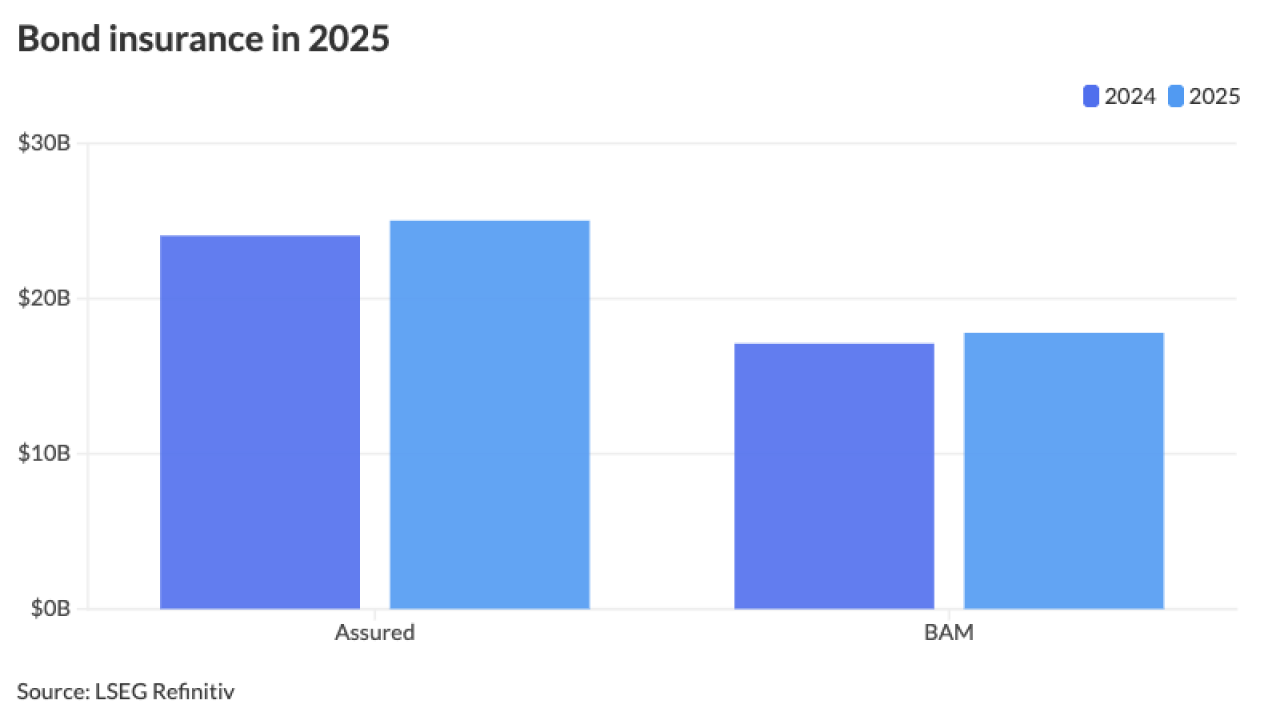WASHINGTON - The Municipal Securities Rulemaking Board is requesting market input on the use of yield curves and other benchmarks in the municipal securities market, information that could go toward enhancing EMMA or building new disclosure services.
The MSRB made the request late Monday, asking market participants to respond by Nov. 27.
The MSRB has been studying the methodologies, mechanics and functions of market indices, yield curves and other benchmarks since 2012, and began making some available on EMMA for free in July 2017. Such indices provide information about muni bond interest rates, potentially allowing investors and issuers to make more informed decisions on investments and issuances.
The request is more informational in nature, the MSRB said, rather than being a prelude to a rule proposal. The MSRB said that its decision to begin providing this kind of information on EMMA is consistent with the Securities and Exchange Commission’s recommendations in its 2012 Report on the Municipal Securities Market. The SEC suggested in that report that the MSRB could improve EMMA by making such information easily accessible to retail investors.
“This request for information is designed to help the MSRB better understands the current landscape of municipal market indicators,” said MSRB President and Chief Executive Officer Lynnette Kelly. “We hope to learn more about how these important benchmarking tools are developed and used by the diverse participants in our market, including issuers, retail investors, institutional investors and market professionals.”

The request itself is only five pages long and takes the form of a survey about how respondents use various types of benchmarks in the municipal market. It asks for information on what types and which specific benchmarks respondents use, as well as how they make use of these tools in various types of transactions such as pricing new issues, institutional-sized trades in the secondary market, and retail-sized trades.
The MSRB also asks about the transparency and integrity of benchmarks.
“Are the methodologies used by the benchmarks currently available in the municipal securities market sufficiently transparent?” the MSRB wants to know. “Do you have concerns regarding the integrity of benchmarks in the municipal securities market?”
The request also asks whether the International Organization of Securities Commissions’ Principles for Financial Benchmarks are appropriate for benchmarks in the municipal securities market. IOSCO describes itself as “the international body that brings together the world's securities regulators and is recognized as the global standard setter for the securities sector.” Headquartered in Madrid, Spain, it released a report on benchmark principles in 2013 that encouraged transparency and appropriate oversight of financial benchmarks.
Tom Doe, president of Municipal Market Analytics, Inc., said he sees the MSRB’s request as a broad effort to understand market indicators in pursuit of its mission. He said the MSRB could potentially use its position to provide indicators that third-party vendors can’t.
Doe pointed out that the Dodd-Frank Act reaffirmed the MSRB’s right to charge fees for data services, and suggested that this solicitation of comments could be part of the MSRB’s efforts to build out their information services capability.
“What would be particularly great,” he said, “is if they really focused on the data that they have and utilized that data to provide insight into market depth, market levels.”
The MSRB has access to information on individual trades, including who is involved in each.
“They can provide unique data and insight,” Doe said. “They can see behind the curtain of the market.”





